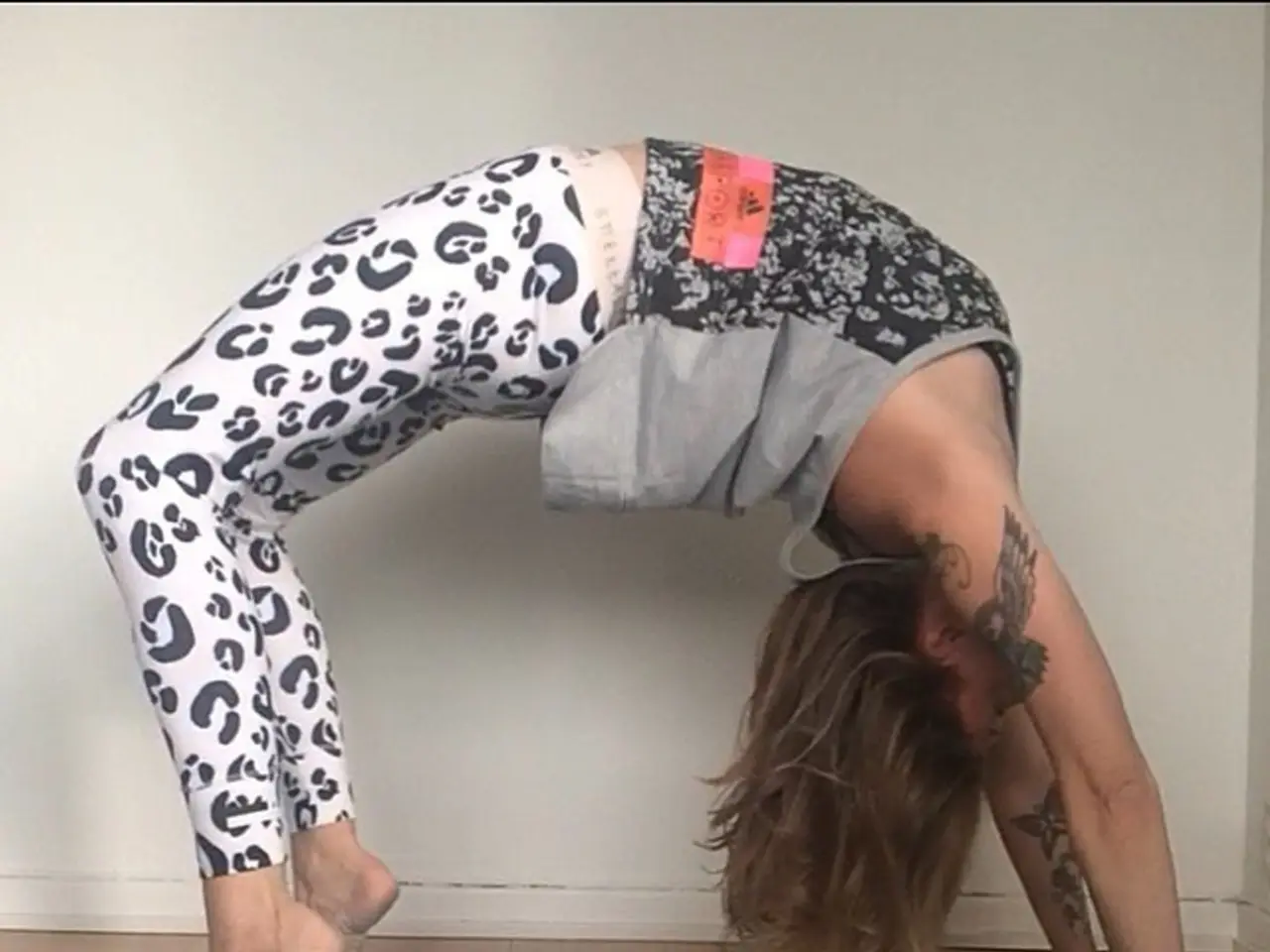Lifetime Balance: Embracing a Comprehensive Strategy for Total Body Health
In today's fast-paced world, maintaining good health and wellness is more important than ever. A balanced and sustainable approach involves incorporating various elements into your daily routine. Here's a guide to help you get started.
Fitness Routines
A well-structured fitness plan is crucial for achieving your fitness goals. A 6-day workout plan targeting different muscle groups can be effective. For example, Day 4 could focus on hip-dominant exercises like deadlifts and glute bridges, while Day 5 might involve full-body functional workouts such as burpees, mountain climbers, and planks. Day 6 can be dedicated to active recovery, with light cardio, yoga/stretching, foam rolling, and breathing exercises.
For beginners, bodyweight exercises like push-ups (wall, knee, full), bodyweight squats, lunges, and planks are a great starting point. Effective beginner plans emphasize full-body strength moves 2–3 times per week.
Incorporating compound exercises, such as deadlifts, push-ups, rows, squats, and thrusters, can help build strength and cardio endurance simultaneously. Building your own workout involves warming up, picking exercises for major muscle groups, performing 2-5 sets of 5-15 reps, resting 1-2 minutes between sets, and finishing with stretching.
Healthy Meal Prep Ideas
A balanced diet is essential for good health. Focus on meals with lean proteins, whole grains, healthy fats, and plenty of vegetables. Prepare meals in advance with simple recipes like grilled chicken or tofu with quinoa and roasted veggies, overnight oats with fruit and nuts for breakfast, and salads with legumes or fish. Keep healthy snacks like nuts, fruit, and yogurt ready to maintain energy and avoid processed food.
Mental Health Tips
Mental health is just as important as physical health. Practice daily stress reduction techniques such as mindful breathing, gratitude journaling, or spending time in nature. Maintain social connections and seek professional support if needed. Set realistic goals and allow for rest and self-compassion.
Yoga and Meditation Practices
Yoga sessions focused on mobility and stretching assist recovery and improve flexibility. Integrating poses such as hip openers, downward dog, and child's pose enhances physical and mental relaxation. Meditation or breathing exercises (5-10 minutes daily) help reduce anxiety and improve focus by calming the nervous system.
Use yoga as active recovery within your fitness routine for holistic wellness. Meditation focuses on calming the mind and cultivating mindfulness. Yoga and meditation can help reduce stress, improve concentration, and promote a sense of inner peace.
By combining these elements—structured exercise, nourishing meals, mindful mental health practices, and yoga/meditation—you can create a balanced, sustainable approach to overall health and wellness. Warming up before workouts and cooling down afterward helps prevent injuries. Experimenting with different flavors and cuisines can keep meals interesting and enjoyable. Seeking support from friends, family, or a mental health professional can be beneficial if experiencing challenges or struggling with mental well-being.
Incorporating a well-structured fitness plan aids in achieving fitness goals, with a 6-day workout schedule focusing on diverse muscle groups, compound exercises like deadlifts and push-ups, and active recovery days incorporating yoga, stretching, and breathing exercises.
A balanced diet enhances overall health; aim for meals rich in lean proteins, whole grains, healthy fats, and plenty of vegetables, and try meal prep techniques using simple recipes.
Mental health is equally vital, so practice daily stress reduction methods such as mindful breathing, gratitude journaling, and spending time in nature. nurturing social connections and seeking professional help, when necessary, is integral to maintaining mental well-being.
Yoga and meditation offer benefits for mind and body—opt for sessions focusing on mobility, stretching, and relaxation, and incorporate daily breathing exercises to reduce anxiety and improve focus.
Combining a structured workout routine, nourishing meals, mindful mental health practices, and yoga/meditation fosters a balanced, sustainable approach to overall health and wellness. Warming up before workouts prevents injuries, while experimenting with different flavors ensures meals remain interesting and enjoyable.
Seeking support from loved ones or a mental health professional can offer encouragement and guidance when encountering challenges or difficulties with mental well-being.




